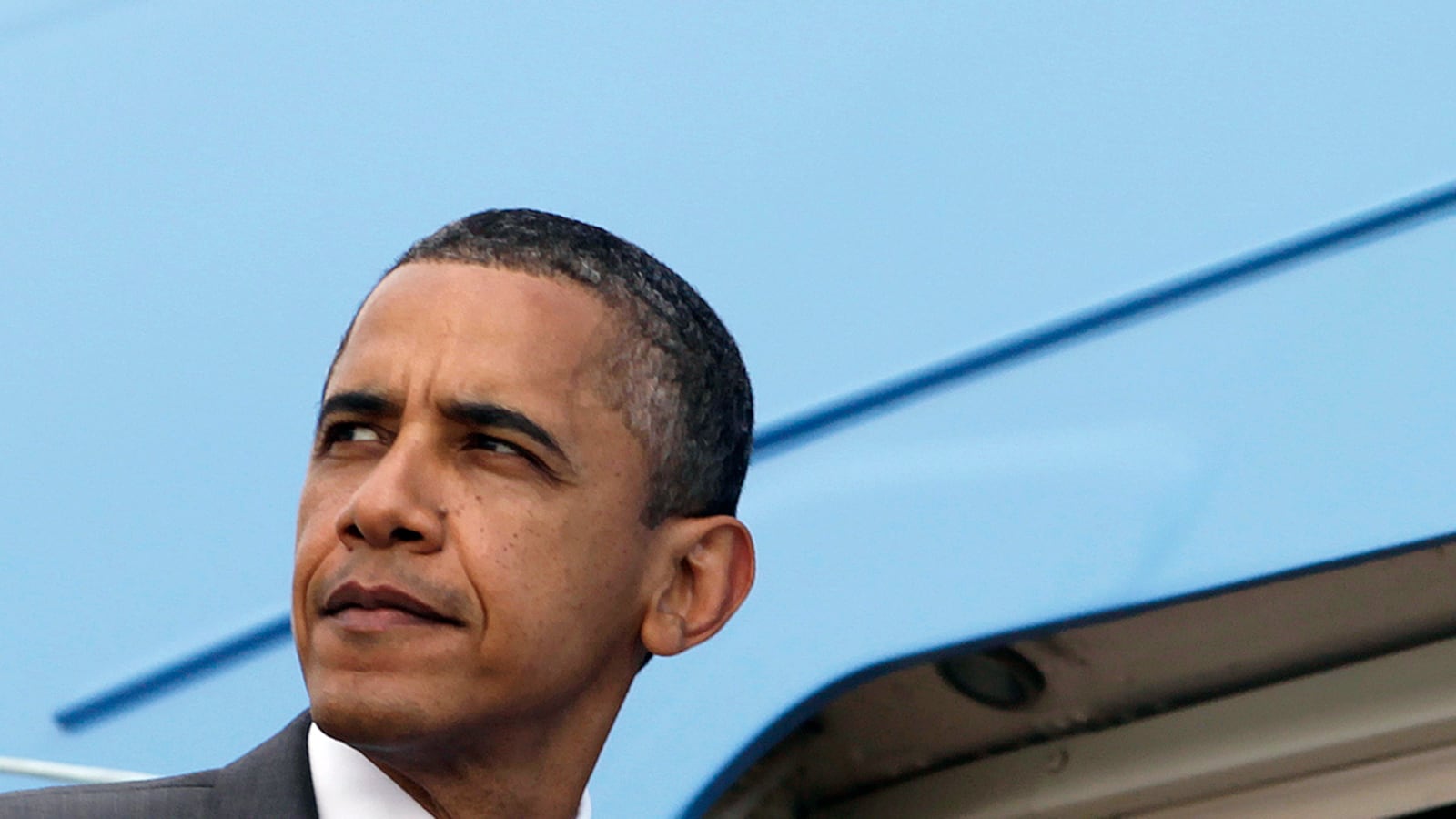A friend of mine who handles PR for various rogue nations says that you don’t always know how things are going to turn out in her line of work. She worked with Muammar Gaddafi for a while—she has a photo on her iPhone that shows her with the soon-to-be deposed leader—but eventually had to drop him. “Sometimes you’re on the right side of history,” she told me, “and sometimes you’re on the wrong side.”
Now that Gaddafi is on his way out, President Obama and his advisers believe they are on the right side. “Yay!” says Tom Malinowski of Human Rights Watch, who spoke frequently with Obama administration officials earlier this year about Libya. “Can you just quote me on that?”
Six months ago, Malinowski was one of the earliest, and most forceful, proponents of intervention in Libya; others, however, balked at the use of military force, and even many of those who supported Obama’s policy thought that he botched things. They were mad over various things, such as the way the president decided not to seek congressional approval for the military campaign and at how U.S. and allied forces stalled for weeks before launching airstrikes in Benghazi. They were also upset with how Obama steadfastly refused to send ground troops, though it could have meant a speedier end to things—and less bloodshed.
The naysayers were a big, raucous group, including everyone from Republican presidential candidates Ron Paul, Michele Bachmann, and Jon Huntsman Jr. (“We just can’t afford it,” Huntsman told Esquire) to senators such as Richard Lugar to scholars and authors such as David Rieff (At the Point of a Gun: Democratic Dreams and Armed Intervention) and Paul Pillar, a former CIA officer who is now a Georgetown University professor.
And many said it was a classic example of Obama leading from behind: slow to decide on military intervention, yielding the lead role to NATO, involving America in a third war without explicitly calling for Gaddafi’s ouster. As the war dragged on for five months and the rebels appeared disorganized, Obama looked ineffective.

Now that Libya seems to have turned out all right, with the rebels controlling most of Tripoli and Gaddafi barely clinging to power, the critics look overly cautious, if not plain wrong. But none of them are saying that they are sorry.
Part of the reason, at least among Republicans on the Hill, is politics: “I do think there is more of a tendency to pull together when the guy in the White House is on your side,” Sen. Mitch McConnell, the Republican minority leader, said last month, explaining why many of his colleagues opposed Obama’s Libya policy. Lugar’s spokesman, Andy Fisher, sounded downright testy on the phone, saying his boss was too busy to talk about Libya and would not have time until September. “Call me after Labor Day,” Fisher told me.
Yet part of the criticism of Obama, and the refusal of his critics to change their positions about Libya, is rooted in a fundamental difference in philosophy about the role of the United States in the world. These views have not changed, despite the ever-shifting conditions in Libya and in other countries.
The intractability of the critics is frustrating and shows the challenge of shaping foreign policy when the economy is weak and the United States faces an increased threat from terrorists hiding in failed or weak states. Balancing these two factors—trying to save taxpayers’ money when the country is in dire straits and at the same time protect the nation from another terrorist attack—is a struggle, and unfortunately the joyful events in Tripoli have little impact.
Those who want the U.S. to intervene in other countries to promote global stability are afraid that Libya, even with the rebels celebrating in the streets, will make people shy away from such action. Thomas Donnelly of the American Enterprise Institute says the intervention provided “an opportunity both to get rid of a nemesis at a relatively low cost, and in a way that could have an important aftereffect on the Arab Spring.” Yet Obama did things “in a somewhat feckless manner” by limiting the military commitment, Donnelly says, and things turned out OK only because “this is a war between two relatively incompetent forces.” (Indeed, one can only hope the rebels are better at war than at soccer: Human Rights Watch’s Malinowski says he and his colleagues played a pickup game in the spring against the rebels: “We crushed them,” he told me. That was a match against human-rights advocates.)
For Donnelly and others who believe the United States should intervene in countries that are troubled or run by autocrats, Libya makes things worse. “Beating Gaddafi was relatively easy. Beating Syrian forces would be a bloodier proposition, and people could say, ‘If you’re not in it to win it, then don’t get in it,’” says Donnelly. “I think he gave armed intervention a bad name.”
And those who thought Libya is a disaster still believe it is, regardless of the street parties in Tripoli. “What messages are being sent by actively intervening to topple a ruler with whom we had reached an understanding about how to fight terrorism and other issues?” says Georgetown University’s Paul Pillar. “It bankrupted our diplomacy; now people will say, ‘Don’t trust the Americans.’”
Likewise, Rieff, who criticized Obama earlier this year for his decision to intervene, says he has not changed his mind about Libya. “I don’t feel chastened,” he says. “Am I supposed to think that the U.S. should go out there and overthrow wicked regimes whenever they can? I think that’s a demented position.”
“These decisions have to be based on principle, and the principle has to be that this is not our job,” Rieff says. “If you’re saying that the American empire can do some things that are good—well, maybe, but it’s not worth it.”
My PR friend found herself on the wrong side of history with Gaddafi, then cut him loose; others say questions of alliances and breakups can be messy. “Libya is a narrative that works for people who are passionate about democracy and liberty,” says the American Enterprise Institute’s Danielle Pletka. “For people who are concerned about national interest, this isn’t a slam dunk.”
In other words, she believes military intervention was the right thing to do, and the jubilation in Tripoli only underscores her confidence. Rather than being influenced by realpolitik, or the demands of a PR client list, she has chosen a path that is unwavering: the moral one. The real lesson of Libya may be that when people base their views on principle, they rarely change their minds. Presumably history will show which side is right.






